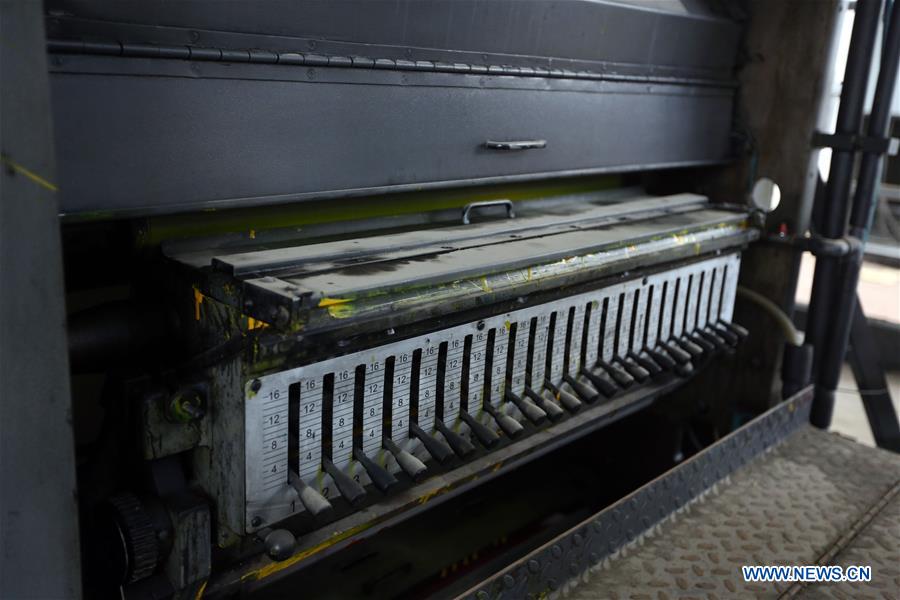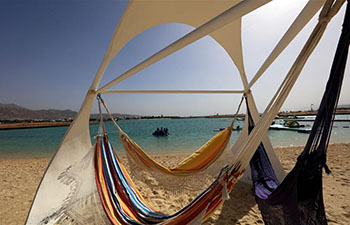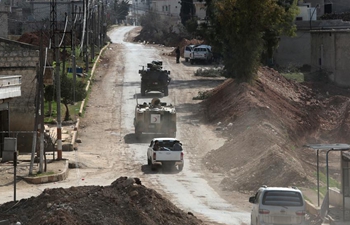
A newspaper printing facility is seen covered in dust in Tripoli, Libya, March 7, 2018. Newspapers in Libya face the danger of extinction due to years-long lack of funding, with few struggling to issue irregularly. (Xinhua/Hamza Turkia)
TRIPOLI, March 8 (Xinhua) -- Newspapers in Libya face the danger of extinction due to years-long lack of funding, with few struggling to issue irregularly.
"The authority was not granted a budget for five years, which even affected the import of printing supplies and operational materials of the central printing facility," said Mahmoud Abu-Shema, the head of the state-owned Authority for the Support and Encouragement of Press.
"We have over 10 significant newspapers and magazines. The only newspaper that continues to issue is a sports weekly because of the continuous funding from a telecommunications company in Libya," Abu-Shema said.
Most newspapers, especially the private ones, have been depending on online publishing, in an attempt to survive.
The authority has a modern central printing facility in the capital Tripoli, which is also affected by the lack of funding for years.
"This printing facility is a national treasure. If an integrated operating budget is allocated, it can even print school textbook," said Mohammed Ramadan Abu-Shrenta, director of the facility.
Libya has been suffering from a political chaos and economic crisis after the 2011 uprising that toppled former leader Muammar Gaddafi's regime.
The violent clashes breaking out in the capital Tripoli in 2014 between rival militias eventually led to the current political division between authorities in the east and west of the country, having brought huge losses to journalism industry.
Khalid Darwesh, a 45-year-old veteran Libyan journalist, also a writer, has been unemployed since the violence that broke out in 2014 because his political orientation opposes the current authorities in western Libya.
"My situation was very bad after the exclusion and marginalization of many of my colleagues. The problem began in late 2014, specifically when the so-called Libya Dawn forces destroyed Tripoli international airport and seized control of all vital facilities in the city," Khalid said.
Jamal Al-Zaidi is another veteran journalist who held many positions in prominent government newspapers before the 2011 uprising.
"The reality of all things in Libya is linked to the political situation and division, and the weakness of the state institutions," said Al-Zaidi, who has been eliminated from journalism in Libya for the past seven years, without knowing the reason.
Al-Zaidi added that "a number of powerful Libyans have an interest in stopping the newspapers," being aware of its power to form public opinion among citizens.
Abdulhafeeth Bilal, the head of media department of Sabratha University in western Libya, said the political conflict in Libya threatens journalism.
Moreover, the absence of media legislation turned media outlets into platforms for political propaganda, said Bilal, instead of professional and credible journalism.
"The solution is to establish a democratic and civil state with free and honest elections, and to adopt international standards of journalism," Bilal said.
Abu-Shema revealed that the authority is preparing a meeting for journalists in Libya to "discuss formation of a universal umbrella that would defend journalists and develop mechanism to issue newspapers again, and pressure the authorities to allocate funding for printing."
"When there is support, the work will be resumed immediately. It is not possible to issue a newspaper without funding," he said.















